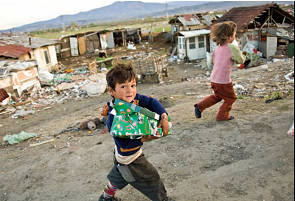Yesterday we defined faith as confidence or conviction. One of the problem people sometimes have with this sort of definition, however, is that we think that there are degrees of faith, or (to put it another way), faith is on a sliding scale, where one end is “wishful-hope-so-thinking” and on the other end is “absolute certainty.”

Though lots of people like to talk about “degrees of faith” this is not a proper way of thinking about biblical faith.
There are no Degrees of Faith
Faith is more like a light switch (and not a dimmer switch!). Just as a light is either on or off, so also, you either believe something or you don’t. If you are not sure whether or not you believe something, then you don’t believe it. If you are partially convinced, but not yet fully convinced, then you do not believe.
 Though Scripture does talk about “little faith” and “great faith” (e.g., Matt 8:10, 26), this is not a reference to the degree of faith someone has, but to the difficulty of the truth believed. Some things are easier to believe than others, and so when someone does not even believe the simple and obvious things, they have little faith, whereas, when someone believes things that are difficult to believe, they have great faith (See my article, “Now That’s Faith” for more.)
Though Scripture does talk about “little faith” and “great faith” (e.g., Matt 8:10, 26), this is not a reference to the degree of faith someone has, but to the difficulty of the truth believed. Some things are easier to believe than others, and so when someone does not even believe the simple and obvious things, they have little faith, whereas, when someone believes things that are difficult to believe, they have great faith (See my article, “Now That’s Faith” for more.)
You Cannot “Choose” to Believe
What all of this means is that we cannot exactly “choose” to believe something. Belief, or faith, is not a decision we make. Faith is something that happens to us when presented with convincing and persuasive evidence.
Sometimes we might not be able to believe something until we see it with our own eyes. Other times, we might come to faith through reason, logic, and the weight of argumentation. Occasionally, we even come to believe something despite our desire not to believe it.
For example, if a father was told that his son was a mass-murderer, the father might not want to believe it, and would not believe it. But if the father sat through the trial of his son, and saw the weight of the evidence, and maybe even heard the confession of his son to his crimes, the father would be forced to believe what he did not want to believe. The father did not choose to believe, but was persuaded or convinced by the evidence presented, and came to believe something he did not wish to be true.
So while facts, logic, and reason can lead to faith, so also can experience, relationships, and revelation. Even hope and trust, which are not themselves faith, can be transformed into faith.
Faith itself can lead to faith, for once we believe some things about God, it becomes easier to believe other things. Divine revelation itself can lead us to believe things about God, ourselves, and eternity which we may not have believed otherwise (Rom 10:17).





 Some people think I have lost my faith. I think I am only now beginning to find it.
Some people think I have lost my faith. I think I am only now beginning to find it. I sunk into depression. My faith shattered. Everything I had worked for and hoped for lay in pieces at my feet. I lost my dream job, and almost all of my Christian friends abandoned me. After applying for nearly 60 different jobs, the only job I could get was as a carpet cleaner. I also had pretty much destroyed my wife and my three daughters by ignoring them for most of my time as a pastor and all of my time as a seminary student. It seemed to me that by almost every standard, my life was a complete failure.
I sunk into depression. My faith shattered. Everything I had worked for and hoped for lay in pieces at my feet. I lost my dream job, and almost all of my Christian friends abandoned me. After applying for nearly 60 different jobs, the only job I could get was as a carpet cleaner. I also had pretty much destroyed my wife and my three daughters by ignoring them for most of my time as a pastor and all of my time as a seminary student. It seemed to me that by almost every standard, my life was a complete failure. I sometimes regret that I left that second church to go to seminary. The people there were so loving and kind. I miss many of them desperately. But now that we have finally settled into an area in which we hope to stay for a while, I am hopeful that God will bring more people into our lives with whom we can build friendships, and learn to love. We have been in our current location for just one year, but we already see some of these sorts of friendship developing.
I sometimes regret that I left that second church to go to seminary. The people there were so loving and kind. I miss many of them desperately. But now that we have finally settled into an area in which we hope to stay for a while, I am hopeful that God will bring more people into our lives with whom we can build friendships, and learn to love. We have been in our current location for just one year, but we already see some of these sorts of friendship developing.
 Children all over the world are hurting and broken through no fault of their own. Many have lost all they had in a hurricane, earthquake, or tsunami. Others have gone through a war that ransacked their village and took the lives of their family, often leaving them orphans. Still other children have endured torture at the hands of slave owners, or have witnessed torture at the hands of enemies.
Children all over the world are hurting and broken through no fault of their own. Many have lost all they had in a hurricane, earthquake, or tsunami. Others have gone through a war that ransacked their village and took the lives of their family, often leaving them orphans. Still other children have endured torture at the hands of slave owners, or have witnessed torture at the hands of enemies.



